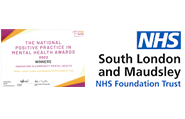Common mental health problems
It is normal for people who have distressing unusual experiences to also struggle with problems like anxiety, panic, depression and suicidal thoughts. On this page we've described some common mental health problems.
If you're having a hard time with any of these please do not hesitate to get help.
To understand more about how these problems work, and for self-help resources and strategies, you can a visit the Centre for Clinical Interventions page. They have detailed booklets on problems such as anxiety, depression, panic, and many more.
Anxiety
Anxiety is a feeling of worry or nervousness. It's an emotion that everyone experiences at times in their lives, particularly when faced with challenges or percieved danger.
Sometimes anxiety can be useful because it helps us prepare for life's challenges. However, it can become a problem when it is intense or overwhelming, lasts for a prolonged period of time, and affects day-to-day living. It makes sense to feel anxious when we're anticipating a challenge like an exam or interview, but if you're feeling anxious all the time then even small things can become really difficult.
Anxiety can affect how a person thinks, feels and acts. It can involve:
- Feeling worried a lot of the time
- Feeling intense fear
- Not being able to relax or feeling restless
- Having problems sleeping
- Avoiding certain situations, people or things
- Having difficulty concentrating and making decisions
Anxiety involves a range of physical symptoms: such as stomach aches, vomiting or feeling sick, sweating, heart racing, headaches, muscle tension or soreness, feeling dizzy or light-headed. These physical symptoms are the body's way of preparing to face whatever challenge or threat we're worried about, but often they just make the problem worse.
To learn ways of coping with anxiety and stress, have a look at this online booklet.

With anxiety I feel like someone is grabbing my like stomach and top of my oesophagus and stuff and like really, really squeezing it so it feels like I can’t breathe…I get like super breathless and shaky, and I feel like I’m going to throw up
Panic attacks
Panic attacks are a particularly intense form of anxiety, which can appear suddenly and sometimes unexpectedly.
They involve physical symptoms, such as an increased heart rate, sweating, trembling, shortness of breath, chest pain or discomfort, light-headedness or dizziness.
During these episodes people may feel overwhelmed with thoughts and fears of dying, losing control or “going crazy”. The more we worry about these things happening, the more our bodies produce physical symptoms of anxiety. And, the more our body produces anxiety, the more we think something really bad is going to happen.
Panic attacks can be overcome. If you're struggling with this, check out the online booklet.
Depression
People use the word ‘depression’ in different ways and we all feel down from time to time; it’s a part of being human. But depression is different from sadness. Sadness is a feeling that lasts for a limited period of time after a difficult experience, like a break up, or an argument with somebody.
Depression is a state that persists over time and seems to cast a dark cloud over life. People who struggle with unusual experiences often suffer from depression too.
Depression can include:
- Feelings of irritability or unhappiness for the most of the day (some people describe this as ‘numbness’ or ‘emptiness’)
- Less interest and pleasure in activities that were once enjoyed
- Change in appetite and weight (some people lose weight even when they are not dieting, others eat more and may gain weight)
- Sleep changes – not being able to sleep or sleeping more than usual
- Restlessness and agitation
- Being tired and fatigued – feeling like you have no energy, nearly every day
- Feeling bad, worthless, hopeless, or guilty, and generally being self-critical or self-blaming
- Being troubled by thoughts of death and suicide
If you've been having these experiences then you may be suffering from depression. Speaking to someone you trust about this is a good first step. You can also visit your GP, who will be able to refer you for talking therapy, and may offer medication.
If you'd like to learn more about coping with depression, have a look at this booklet.

It kind of feels like I can’t get up, and I don’t want to move, and I don’t want to eat or shower or get out of bed. And that, like, I’m floating in a big pool of water and nothing’s like, I’m just touching it through like a barrier and stuff, and I’m not really there
Suicidal thoughts
It is not unusual for people to experience thoughts of self-harm or suicide when they feel very low or depressed. We know that talking about suicidal thoughts can be really difficult. While it's not uncommon to have suicidal thoughts, it is really important to let someone know so that you get the right support.
If you are feeling low, worried, or are wanting to talk to someone in confidence please contact the Samaritans.
If you are worried about your immediate safety please call 999.
Here is our page on accessing help in an emergency.
More information
If you're experiencing significant problems with anxiety, depression or another aspect of mental health, then help is available. It may be that you have a specific mental health diagnosis, or feel that one would be helpful in terms of understanding what is going on.
The mental health charity MIND have a detailed page on many different types of mental health problems. To have a look please click here.







